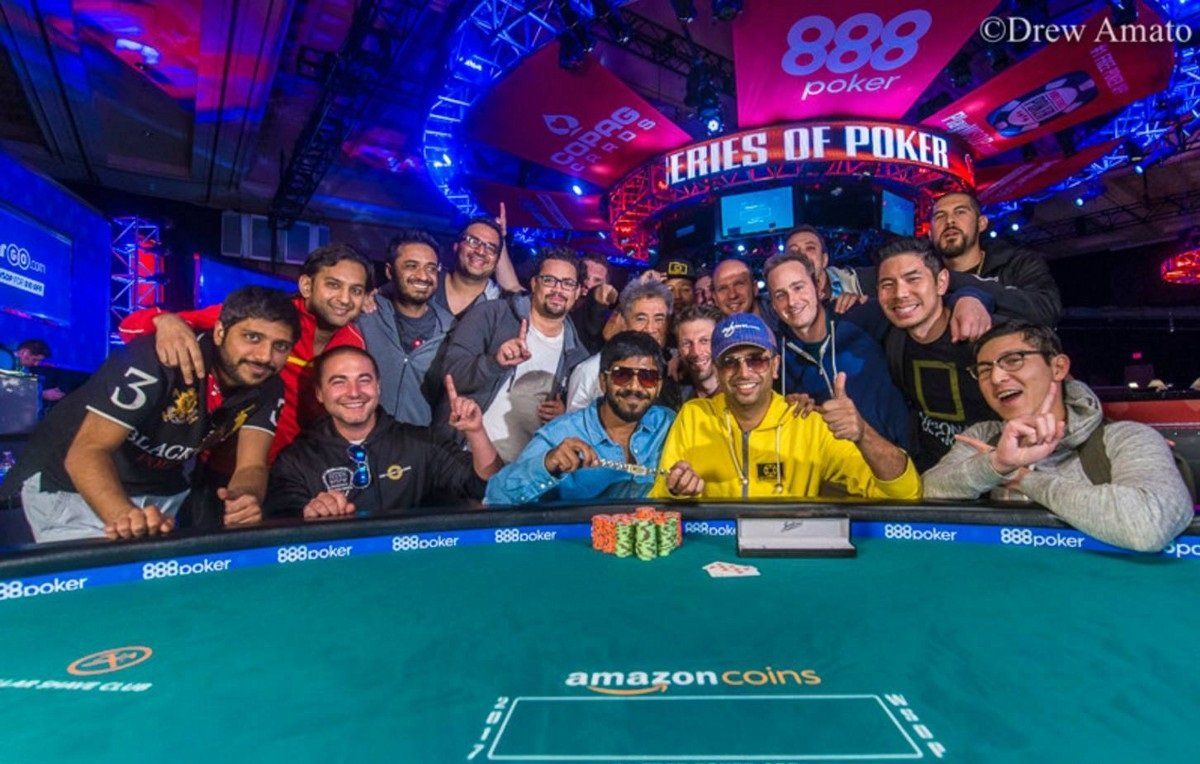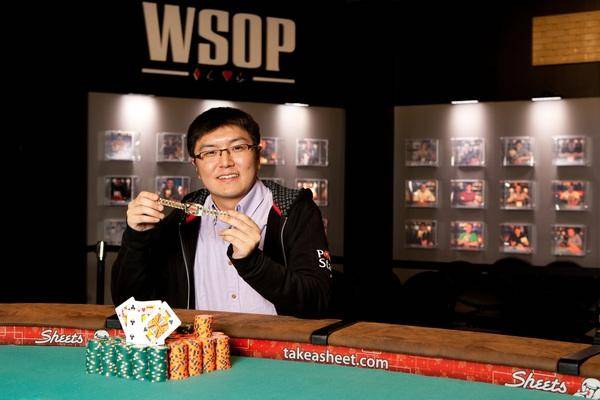WSOP bracelets and Asia-Pacific players
It’s that time of the year again with the biggest poker festival upon us, the World Series of Poker. On May 29 – July 17, 2018, players from all over the globe will descend upon the Rio All-Suite Hotel & Casino in Las Vegas for the 49th edition of this annual celebration. Up for grabs are 78 official gold bracelets, the most coveted piece of hardware awarded only to event champions.
Last year, the world witnessed India capture their first bracelet(s) with Nipun Java and Aditya Sushant winning the Tag Team event. Unfortunately, those were the only Asians who reached that milestone.

While many Asians aspire to attain the same glory, looking down at the actual figures show that through the years only 9 Asian countries are represented with all of them below double digits.
The countries are Israel, Indonesia, China, India, Japan, Afghanistan, Iran, Malaysia, and Thailand. As for New Zealand, they have one bracelet. Australia stands apart with 24.
Why there are few Asian WSOP winners
With poker booming in Asia for several years, and certainly no lack of events in the region, one does wonder why there aren’t more bracelet winners coming from this faction. One of the likeliest reasons is perhaps the number of Asians in attendance. For a majority of the players, Las Vegas is not just far but it also takes a toll on the pocket.
Even for regulars of the Asian circuit, one would need a sizable bankroll to cover the costs which include travel, accommodations, meals, and most especially, entry fees to the tournaments. This greatly decreases the number of players willing to take on the world stage.
For those that do make their way to the WSOP, most of them specialize in Texas Hold’em. Being the most popular game at the series, players will then have the difficult task of navigating their way to the top of very large fields. To have a better chance at the gold, players will need to expand their repertoire to include Mixed Game formats or even higher buy-in events.
Currently, only a small number of Asian Players have shown such versatility. In 2012, Japan’s Naoya Kihara won a bracelet at the 5K Pot Limit Omaha 6-Handed event. Since then, he has cashed in 2-7 Lowball, H.O.R.S.E., Razz, Seven Card Stud, and 8-10 game mix. Recently, WPT Asia-Pacific Player of the Year, Pete Chen, announced he would be playing mixed games at the WSOP. Last year, Chen placed 2nd at one of the 5K NLH events.
Bracelet winners from Asia-Pacific nations
Taking a look at the Asian nations on the WSOP bracelet board, Israel has the highest straps with 8 titles won. Indonesia comes in second to the leader with 5 titles all won by USA-based Indonesian pro John Juanda.
China and India
China and India are tied with 3 bracelets each. Jiang Chen put China on the board for his win back in 2005; Yue Du added another in 2016; then last year, Yunpeng Zhou won the WSOP China Main Event held in Sanya. Last year, China ranked 11th in the highest number of entries at the WSOP with 52. Chinese pros spotted at the WSOP were Xixiang Luo, Yang Zhang, and Guo Dong to mention a few.
For India, 2017 was their breakthrough year. USA-based Indian pro Nipun Java won two WSOP bracelets with one of the titles in a tag team event partnered with Aditya Sushant. Every year the series sees an increase of Indian players with last year at 30 entries. One player in hot pursuit of a gold is the country’s 3rd ranked Aditya Agarwal. His first WSOP cash was back in 2007 and since piled on the deep runs. Last year he cashed 11 times at the series. Another player is Kunal Patni.
Japan and Afghanistan

Japan and Afghanistan are next on the ladder with two bracelets each. Naoya Kihara was first to plant the Japanese flag in 2012 followed by Takahiro Nakai in 2015. Japan followed right behind China in the number of entries last year at 50. One of this year’s attendees will be Iori Yogo. The pro placed 3rd at one of the events in 2014 and will try and take it to the summit this time around.
Though we haven’t touched upon much news on Afghanistan, as part of the region, the two bracelet holders are Qushqar Morad for a Stud event in 2002, and six years later, Sherkhan Farnood for a bracelet at the 2008 WSOP Europe in a H.O.R.S.E event.
Single bracelets
The next ones in the list are Iran, Thailand, and Malaysia all with one title apiece. Well-known pro Amir Vahedi strapped it for Iran, Nat Koe for Thailand, and Junzhong Loo for his victory at the WSOP APAC in 2013. In Asia-Pacific, Simon Watt brought one in for New Zealand back in 2010.
Australia ranked 5th overall
Then we have Australia. They rank 5th overall in bracelets with 24. Jeff Lisandro is a monster at the series with 6 on his wrist. Mel Judah is next with 2 bracelets. Out of the 16 players with one each are famous pros Joe Hachem, James Obst, Aaron Lim, and Martin Kozlov to mention a few.
Asian countries with no bracelets
Asian countries yet to bring home the gold are Philippines, Singapore, Korea, Cambodia, Taiwan, Macau, Vietnam, and Hong Kong. Each year, some of these nations are represented at the series although the numbers are very low. Despite this, some players do get far such as Taiwan’s Pete Chen who nearly landed a bracelet finishing 2nd at one of the events last year.
Viet Kieu successes at the WSOP
Out of all the Asian countries still hunting down that first bracelet, one country in an peculiar position is Vietnam. No player flying the Vietnam flag has won a WSOP event but the Viet Kieu have been very successful. Famous pros Scotty Nguyen, Men “the Master” Nguyen, and David Pham bring in a total of 15 bracelets combined. If only these 3 players were listed under their ancestral homeland Vietnam then the country would be ranked 8th overall.
Article by Tricia David


















